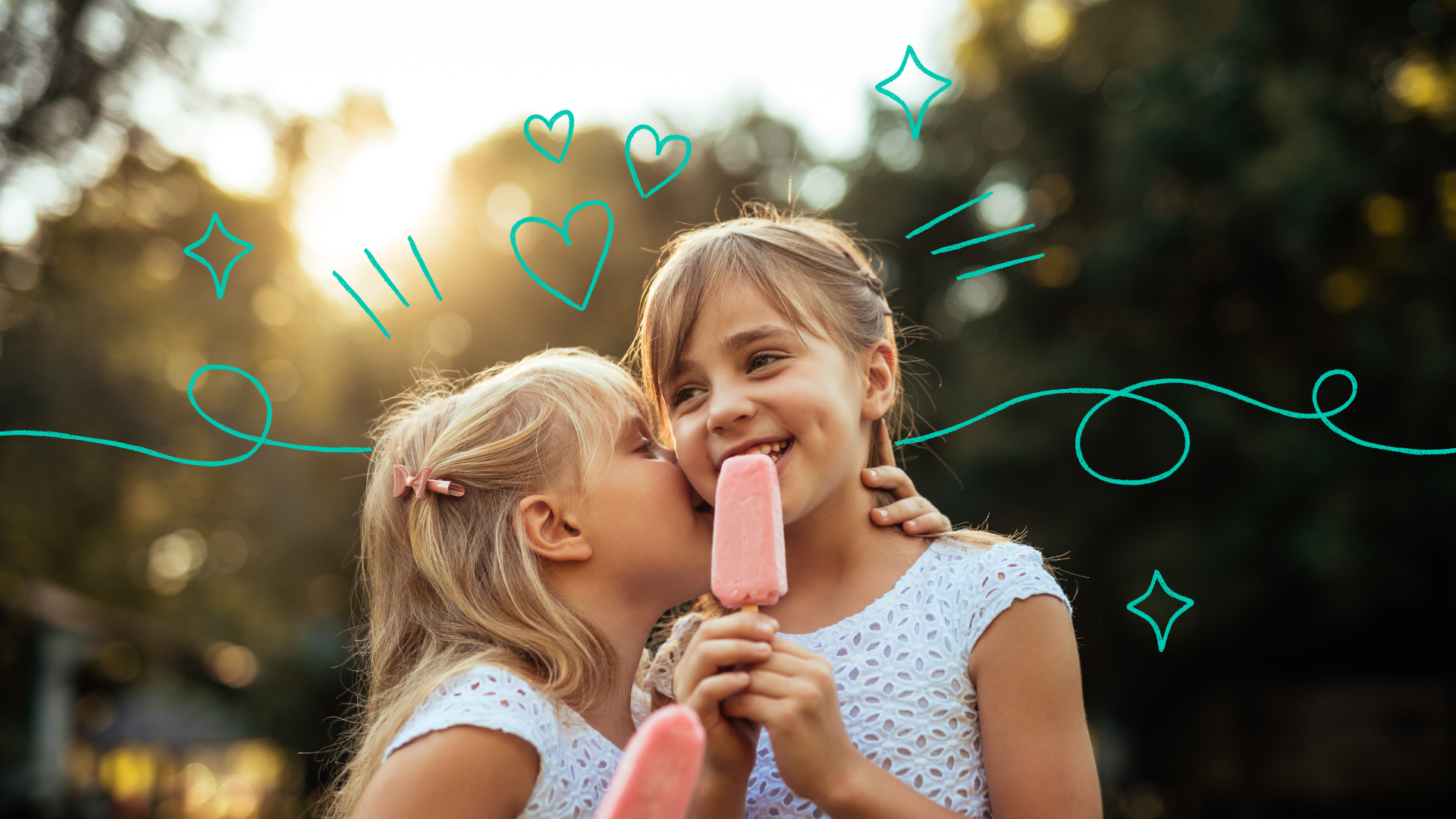
- 2 mins
Modeling Positive Behaviors to Help Your Kids Make Healthy Choices

When we think of “milestones” in a child’s development, we often think of things like talking, walking and learning foundational education skills. In addition to these, social and emotional skills are imperative to growing healthy adults. Adults who can connect with others and maintain positive relationships. From birth, babies seek to understand and communicate through their relationships with their parents or caregivers. They respond positively to touch and can be quieted and comforted when they are upset. After three months, they begin to laugh, respond to their own name and recognize others. As they grow into childhood, they experience and learn to identify a much more complex range of emotions and start to develop relationships with their peers. Children who have social and emotional skills are more likely to make and keep friendships, manage stress, resolve conflicts, resist negative social pressure and gain empathy for others.
Having a clear understanding of developmental milestones can allow us to identify any emotional or behavioral disorder early. Identifying challenges sooner rather than later enables us to find support and intervention to provide the child with tools that will lessen the negative impacts of their challenges. According to the Centers for Disease Control and Prevention (CDC), there are a variety of ways to measure your child’s milestones. This includes those specific to social and emotional development.
How can we use this parental relationship to help influence and cultivate these important lifelong skills in our children? Below are some key tips to put into practice right away that can serve children at varying stages.
Showing your child how to engage and respond to situations and people is the first step in promoting an emotionally healthy child. Show care and engagement with others, use phrases like “I’m sorry” when necessary, smile, laugh and play games. Even something as simple as teaching your child how to greet strangers and how to say goodbye will help them to engage in the wider societal norms.
Being responsive to your child’s emotions, whether positive or negative, shows engagement and acknowledgment of their feelings. It helps develop a sense of trust and bonding. Healthy physical affection through hugs and other physical forms helps guide the child into understanding when these expressions are appropriate and whom they would be appropriate for. It is also an opportunity to speak about boundaries and positive and negative forms of physical touch. This can also be shown through learning how to care for younger siblings and even pets.
Asking open-ended questions such as “What would you do?” encourages your child to discuss their day, feelings, and contemplations about the world around them. This helps develop strong social skills, confidence in speaking up, and the ability to listen to others. These are all key skills in developing strong relationships in the future.
Reading together and discussing stories is a great way to engage your child in a variety of topics and situations. Storytelling helps develop empathy and understanding of wider topics and emotions. Children can learn about different types of families and cultures, and how to problem-solve through examples. It’s also a good way to understand complex emotions like anxiety or stress as well as situations such as divorce, moving or loss.
Learning through play and sports helps to develop skills such as turn-taking, team building and dealing with issues of failure and fairness. Some argue that a culture of having “no winners or losers” can be a challenge when children grow and realize that they actually don’t always get the prize. Teaching healthy competition and encouraging children to move through disappointment in a productive way is essential.
Not every child will be able to access these skills during their development easily, regardless of the parental relationship. Developmental challenges can be signs of disorders such as Autism Spectrum Disorder or ADHD. If left untreated, by adulthood behavioral disorders can impact a person’s ability to hold down a job and maintain relationships. Emotional disorders can lead to difficulty being happy, controlling emotions or paying attention. You can find more information on these and other disorders and how they develop here. Also, here’s more information and resources on social-emotional development are available at Child Mind Institute and Education Policy Institute.